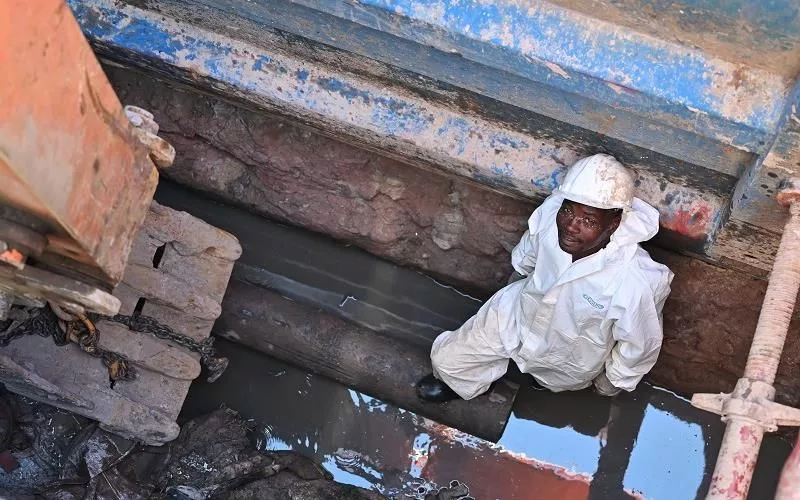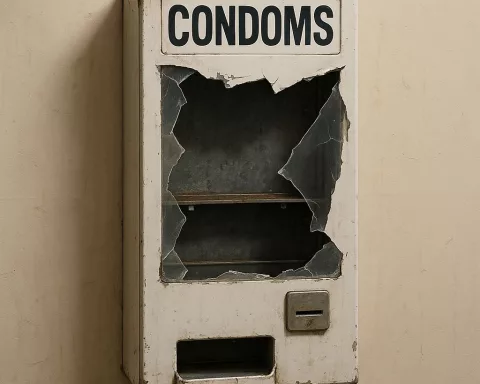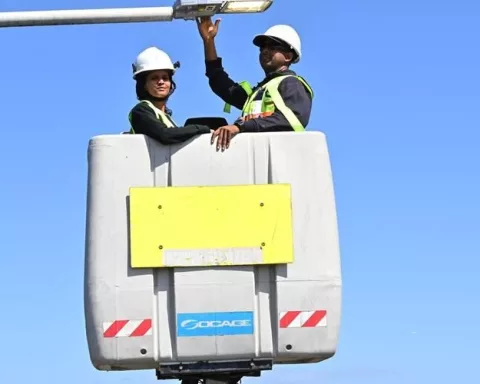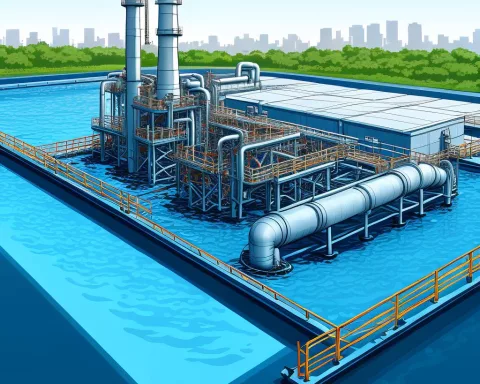The City of Cape Town has invested over R5.5m in the Maitland Sewer Pipe Replacement Project, which aims to replace outdated sewer pipes in the Maitland district. The project uses an innovative approach called Cured-in-place pipe (CIPP) to line old vitrified clay sewer pipes with a resin-coated textile tube, resulting in a jointless and flawless lining. The project serves as an example for other cities on how to prioritize and tackle infrastructure-related issues, while emphasizing civic responsibility and the importance of collaboration and compliance among citizens.
What is the Maitland Sewer Pipe Replacement Project in Cape Town?
The Maitland Sewer Pipe Replacement Project is an initiative by the City of Cape Town to replace outdated sewer pipes in Maitland district. The project is an essential component of the Mayor’s Priority Programme (MPP) and symbolizes the city’s unwavering commitment to bolstering its public utilities while thwarting environmental hazards such as sewer spills. The project uses an innovative approach called Cured-in-place pipe (CIPP) which involves lining the old, nearly 70-year-old vitrified clay sewer pipes with a resin-coated textile tube.
The City of Cape Town has demonstrated its unwavering dedication to the upkeep of its infrastructure and safeguarding public health by investing more than R5.5m to replace 2,244m of outdated sewer pipes in Maitland district. This initiative, christened as the Maitland Sewer Pipe Replacement Project, symbolizes the city’s unwavering commitment to bolstering its public utilities while thwarting environmental hazards such as sewer spills.
Commitment to Public Health and Infrastructure
Kicking off in January 2023, this initiative is an essential component of the Mayor’s Priority Programme (MPP). The Water and Sanitation Directorate, as a part of this initiative, has set aside a significant R836.6 million budget for the upkeep of infrastructure and replacement of pipes in the 2023/2024 fiscal period.
The initial phase of the Maitland project focused on revitalizing sewer pipes installed one to five metres below the surface, along roads like Steen, Royal, Camden, Kensington, Coronation, Amstel, Miramonte, Janssens, and Bodmin streets. This extensive revamp became a necessity due to the repeated collapsing and overflows from the existing sewer pipelines, which raised hygiene-related worries among the residents of Maitland.
An Innovative Approach to Sewer Pipe Replacement
The replacement procedure involved a trenchless method called Cured-in-place pipe (CIPP). This approach involved lining the old, nearly 70-year-old vitrified clay sewer pipes with a resin-coated textile tube, which solidifies after it is inserted. This innovative process provides a flawless and jointless lining inside the existing pipe and has gained worldwide recognition as a leading rehabilitation method.
A site visit was arranged during the course of this project, where Councillor Zahid Badroodien, the Mayoral Committee Member for Water and Sanitation, and members of the Maitland Ratepayers Association got a comprehensive briefing from the City’s Reticulation team. Despite challenging circumstances during the project execution, such as stubborn blockages resulting from the unlawful disposal of foreign substances and construction debris in the sewer pipeline, the visitors were pleased with the apparent progress.
Impact and Future Goals
Councillor Badroodien lauded the successful completion of a significant portion of Maitland’s sewer pipes. He underscored that pipe replacement is an essential part of the strategy of the Water and Sanitation Directorate to reduce the instances of sewer spills and enhance sanitation services. Reflecting on the City’s ambitious plans, he stated, “The City aims to replace 100km of sewer pipes per year over the next three financial years.”
The Maitland Sewer Pipe Replacement Project serves as a beacon of the City of Cape Town’s proactive stance on improving infrastructure. It not only exhibits the city’s commitment to its residents by emphasizing their health and wellbeing but also forms an integral part of a broader array of initiatives under the Mayor’s Priority Programme.
A Model for Other Cities
The significant headway made despite the obstacles encountered during this project reflects the City’s dedication to meeting its objectives. It’s a testament to the effective collaboration among various stakeholders, highlighting the significance of collective efforts in achieving shared goals.
The City of Cape Town’s effort to replace ageing and deteriorating infrastructure provides a model for other cities, demonstrating how urban administrations can prioritize and tackle infrastructure-related issues, thereby improving the living quality of their residents. The pledge to replace 100km of sewer pipes over the next three fiscal years further solidifies the city’s determination to persistently enhance its public utilities.
However, the Maitland Sewer Pipe Replacement Project not only represents a significant step in the right direction, but it also emphasizes the importance of civic responsibility. The challenges faced due to illegal dumping underscore the necessity for citizens to follow regulations for the common good. The overall success of such ambitious projects relies not only on effective planning and execution by the authorities but also on the collaboration and compliance of the citizens they serve.
By way of the Maitland Sewer Pipe Replacement Project, the City of Cape Town exemplifies how a dedicated administration, advanced technology, and cooperative citizens can strike an effective balance. It depicts the leaps a city can make toward improving its public utilities, ensuring its residents’ wellbeing, and ultimately fostering a healthier, more vibrant urban landscape.
1. What is the Maitland Sewer Pipe Replacement Project in Cape Town?
The Maitland Sewer Pipe Replacement Project is an initiative by the City of Cape Town to replace outdated sewer pipes in Maitland district. The project uses an innovative approach called Cured-in-place pipe (CIPP) to line old vitrified clay sewer pipes with a resin-coated textile tube, resulting in a jointless and flawless lining.
2. What is the budget for the upkeep of infrastructure and replacement of pipes in Cape Town?
The Water and Sanitation Directorate of the City of Cape Town has set aside a significant R836.6 million budget for the upkeep of infrastructure and replacement of pipes in the 2023/2024 fiscal period.
3. What is the Cured-in-place pipe (CIPP) approach to sewer pipe replacement?
Cured-in-place pipe (CIPP) is a trenchless method used to replace outdated sewer pipes. It involves lining the old, nearly 70-year-old vitrified clay sewer pipes with a resin-coated textile tube, which solidifies after it is inserted. This innovative process provides a flawless and jointless lining inside the existing pipe and has gained worldwide recognition as a leading rehabilitation method.
4. What are the future goals of the City of Cape Town in terms of sewer pipe replacement?
The City of Cape Town aims to replace 100km of sewer pipes per year over the next three financial years as part of its strategy to reduce instances of sewer spills and enhance sanitation services.
5. How does the Maitland Sewer Pipe Replacement Project serve as a model for other cities?
The Maitland Sewer Pipe Replacement Project serves as a model for other cities by demonstrating how urban administrations can prioritize and tackle infrastructure-related issues, emphasizing the importance of civic responsibility, and showing the significance of collective efforts in achieving shared goals.
6. What challenges did the City of Cape Town face during the Maitland Sewer Pipe Replacement Project?
The City of Cape Town faced challenges during the Maitland Sewer Pipe Replacement Project due to stubborn blockages resulting from the unlawful disposal of foreign substances and construction debris in the sewer pipeline. This underscores the necessity for citizens to follow regulations for the common good, highlighting the importance of collaboration and compliance among citizens.












